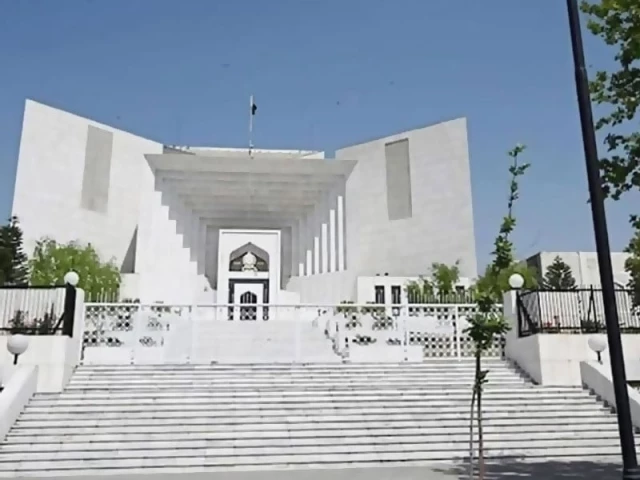The Supreme Court questioned on Monday the justification of the government behind the profits tax, asking if the ordinary price increases could be treated as extraordinary profits.
A constitutional bench of five members, led by Judge Amicin Khan, heard the arguments of the lawyer for the petitioners Ahmed Jamal Sukhera.
Judge Hassan Azhar Rizvi asked: “If the essence going from RS150 to Rs200, would it be a profit? If sugar goes from RS160 to RS170, would it still count? ”
Sukhera argued that the tax was unjustly targeting some sectors. “If three or four people benefit from it while the majority suffer losses, how to impose a tax?” He said, noting contradictions in government policy and that the measure was motivated only by the “policy on the benefit of the fault”.
Judge Muhammad Ali Mazhar reminded him that constitutional guarantees have limits: “Article 10-A concerns the fair trial-what has it to do with taxation?”
Sukhera insisted that taxation should involve the public’s participation, arguing that the tax violated entry 47 of the Constitution, which governs the tax powers of Parliament.
Read: SC hears a Super tax challenge, FBR defends the power of Parliament
Judge Mazhar replied that, although certain municipal taxes include such provisions, “the income tax law has no clause concerning the public hearing”.
During the procedure, Sukhera pointed out: “Simplicity can also be a captivating charm”, which encourages judge Mazhar to Inip: “Maybe it’s your kind of simplicity?” – Drawing laughter.
By referring to her age, Sukhera said: “I am old now; My children are lawyers and they are sitting here. ”
Justice Jamal Khan Mandokhail asked for his age, and hearing “57”, said: “Do you consider 57 years?” – Provide an additional laugh.
Sukhera concluded: “One day, none of us will be here, but this judicial decision will remain.”
The bench noted that autonomous government institutions, including PIA and steelworks, worked at a loss but were included in the list of tax supers.
Find out more: Super tax under surveillance before the Supreme Court
Judge Mandokhail observed that the supervision of these institutions is the responsibility of the government, not that of the Parliament. The hearing was adjourned until Tuesday.
Super taxes
The Super Tax is an additional direct debit on individuals, companies and high industries, intended for large companies. In the federal budget of 2022-2023, the government has imposed up to 10% super taxes on the main sectors, including cement, steel, sugar, oil and gas, fertilizers, banks and textiles, citing the need to increase additional income for economic stabilization.
Petitions contesting the levy were filed before the Superior Court by individuals and organizations. During the previous hearing, the bench was informed by the FBR that no one had disputed the verdict of the High Court of Lahore (LHC), respecting the legality of the super tax imposed under article 4C of the income tax order, in 2001, while reducing its rate by 10% to 4% for 16 sectors, including the bank and offering partial repair to the petitioners.
Earlier this year, the Apex Court wondered if the center could distribute subsequent tax revenue to the provinces, noting that if the levy has been extended since 2016, no funds had been used for the declared objective.
Read also: The Supreme Court CB gives the distribution of super taxes to the provinces
During a recent audience, the bench raised concerns about the impact of the super tax on ordinary citizens, judge Mazhar observing that it was a bag of cement or an expedition of liquefied natural gas, “the whole burden is common man”.
“The business will flourish if we make things easier for people,” he added.
“Do not discourage taxpayers – when you do it, people end up leaving the country,” warned judge Mandokhail.
Hamid then said that only 15 sectors with revenues exceeding 300 million rupees were responsible for the super tax and that no business had claimed an inability to pay. The bench pressed the FBR to explain why the distinctions among taxpayers have been created, stressing that budgetary measures should not redo the burden to the public.




